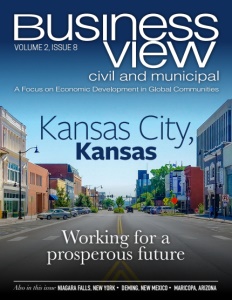As those in municipal service will attest, running a municipality is becoming more and more complex. From a legal perspective, the need to seek specialized outside advice is now all part of doing business. Enter DD West LLP – a progressive, cutting-edge law firm serving provincial departments, provincial crown corporations, municipalities, quasi-municipal entities and other public sector clients throughout Western Canada, Manitoba, and Northwestern Ontario for over 30 years.
Their collective knowledge and experience makes DD West trusted advisors on a wide variety of municipal law related issues, including litigation and administrative law (appearing before tribunals) related to municipal law. They also provide public sector commercial advise on large and project-based matters such as environmental reviews, complex corporate structures, expropriations, and amalgamations. The firm has offices in four locations: Winnipeg, Manitoba, Regina, Saskatchewan, and Calgary and Airdrie in Alberta.
DD West Managing Partner (National), Orvel L. Currie, has a long history in government relations and a broad range of experience. He regularly advises governments and quasi-municipal entities on public policy issues and assists them through regulatory matters. Business View recently spoke with him about the current challenges facing municipalities in Canada today, regarding municipal law. His insights are enlightening, and well worth noting.
BVM: What type of services do public sector clients request from a municipal law firm?
Currie: “We assist municipalities with complex commercial agreements regarding provision of public services. We also assist them with by-law drafting and guiding them through municipal law, in general. Municipal law is a changing landscape, primarily with regard to how much power municipalities have with respect to controlling issues within their jurisdiction. Several Supreme Court of Canada decisions have indicated that municipal officials should be allowed great discretion on how they react to local issues in both a legislative and judicial review process.
“Municipal law is a very unique discipline and oftentimes misunderstood. What people assume to be the law, may not be the law. Many municipalities are now really focusing on getting subject matter experts to deal with their legal issues. We are frequently engaged across Canada by large urban centers, medium-sized urban centers, and rural centers – all with their unique issues.
Three emerging issues in Canada are indigenous development agreements with a sovereign framework within a municipal jurisdiction, rapid development, and transportation growth. The largest growth is transportation law. Municipalities will be faced with consequences of more and larger transportation companies and issues related to those entities. Airports will be affected as more goods flow through them. The laws regulating the airline, trucking, and rail industry, are changing; it’s an emerging area. And our office is experienced in all three of those areas.”
BVM: Is everything legally able to be documented and signed digitally now? Does anything have to be done face to face?
Currie: “There are two things happening in that realm. The first part is that most documents can now be verified and certified through a video conferenced signature. In addition we have a digital program which verifies a signature and sends us a certificate confirming the signature is valid. There are some very particular procedures to be followed but it can be done. There are special circumstances, such as land title documents which have been approved for video conferencing signature on an emergency basis, based upon the COVID circumstances. Now in some jurisdictions there is a standard set of documents you can sign electronically that is now statutorily allowed. For example, Wills. As long as they are correctly signed by video conference, you can now indicate that you saw them sign it via a video and they confirmed it with their signature.
“In other jurisdictions, we even do court filings electronically, and a lot of filings for the land titles office – which was not the case 10 years ago. It started to shift maybe five years ago, but the pandemic has created a basis for moving those opportunities forward. The day that you walk into a lawyer’s office and see boxes and boxes of documents is no longer. It’s all on the computer. Our offices are 80 percent paperless. That makes us feel good because it’s environmentally friendly. And it is efficient because a computer can search faster than a person going through, for example 10 boxes, to find one document.
“The pandemic has not been a problem for us from a technology perspective, because we were already set up prior to COVID. We were using video conferencing between the offices and with clients across the country. We comfortably moved right into full video conferencing and having people work from home.”
BVM: How do you see the landscape of municipal law evolving in the next three to five years?
Currie: “There is going to be a massive amount of municipal work coming forward. The regulatory and statutory schemes being developed for municipalities will require lawyers to be acutely aware of how those statutes affect municipalities. So there will be a substantial amount of growth in this area of the law.
“Municipalities are involved in everything. So aside from the basic growth of municipal law, we see now indigenous governments that are going to start to interact with local governments and that’s going to create a whole bandwidth of work for lawyers. And, as I indicated, the transportation law industry is going to interact with local government, and lawyers are going to have to understand what municipal local government law is about – what powers they have and how those powers can be exercised. How does local government law interact with Federal and Provincial Law.
“I’m hoping for the future that more lawyers will understand how powerful municipalities really are. If you look at their statutes, they’ve been given extraordinary powers to enforce their by-laws and to make decisions for the people who elected them – both in planning, and regulation of human behavior, at a very local level.”
BVM: Have careers in municipal law and indigenous law and transportation law become more popular?
Currie: I would say indigenous law is popular. However, not transportation or Municipal law. I’d say it’s going to be a situation where these areas are going to burgeon way ahead of young people recognizing the opportunity, particularly students, recognizing the value of where they would go to get work. Problem two is that none of the areas of the law are considered ‘sexy’. It’s technically solid law, very good practices. Young students and lawyers do not realize that many municipalities have some of the highest-end commercial agreements a lawyer will see. In addition, municipalities are often involved in the most complex of administrative law issues.
“If we’re talking about a P3 (public-private partnership), those agreements start at $150 million and are very intense. We’re doing developments at $50 million and $100 million all the time. But students don’t see that. When we’re talking about an 800-home subdivision outside of Calgary, where the gross value is probably better than a billion dollars in development activity, it’s very hard to explain to a young lawyer exactly what they’re getting into – they just don’t have the background to it. So right now, we’re trying to work through that by teaching at the law schools to build awareness.
“The other problem we find is that there are no real books on municipal law. Rogers on Municipal Law is three volumes thick, very fine print, and the result is there is no simple how-to manual in municipal law. You must dig in and that gets scary for young people, and for many lawyers. So I’m writing a book to assist with this concern.”

